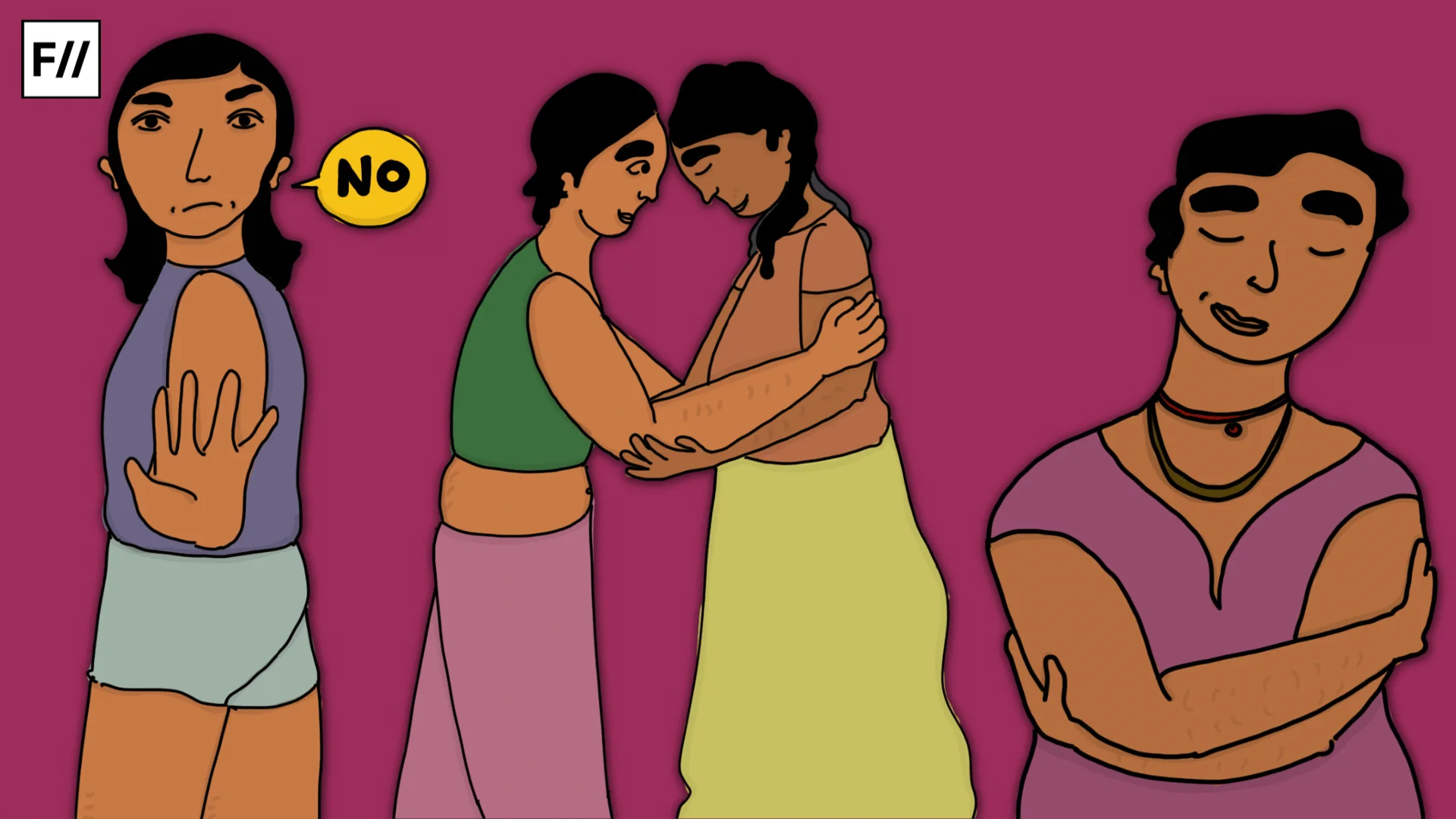Female sexuality has always been a very elusive and contentious subject. For several decades now there’s been an inherent enigma that surrounds it, resulting in manifestations such as women are insatiable or have low levels of sexual desires. This notion has led to the understanding that women do not want, or even need sexual gratification.
This belief is connected to a deeply-entrenched problem – the absence of mutual pleasure and reciprocity in intimate spaces. The issue stems from the existing patriarchy in sexual relations, specifically between men and women. Kate Millet’s seminal work,Sexual Politics, describes this relationship not as that of equals but rather that of “dominance and subordinance”. According to her, there is an “interior colonization” which has been highly institutionalised.
Traditionally, men have had sexual dominion over women’s body and decided how sex should be performed as an activity. This cultural ideology has been pervasive and deeply entrenched in our society. Instead of being looked at as a pursuit, involving two individuals, men, generally, treat it as a one-sided activity, mostly being concerned about their own self-centred pleasures.
She further elucidates that sexual relations involve the subjugation of women, which connects to the even bigger problem of the patriarchal power structure. Within this structure, women are not their own agents and are narrowly defined in terms of men’s understanding of their needs and pleasure, almost as if they are non-existent.
Millet’s revolutionary work can be applied to the Indian context. For this, factors such as temperament, status, and gender roles need to be understood. In the traditional Indian view, women are expected to have temperaments of ‘passivity’ and ‘docility’. Furthermore, they have been given a lower status than men, and are mostly limited to domestic roles of marriage, child rearing, doing household chores, knitting and taking care of the family. With this kind of an ideology, the socialisation between the two sexes results in an inevitable subordination of women.
Traditionally, men have had sexual dominion over women’s body and decided how sex should be performed as an activity.
From a very young age, ‘Indian values’ are fixed inside a women’s mind. They are made to believe that pre-marital sex is bad and not acceptable as a practice. Not having sex, until marriage is a matter of chastity and modesty. Ideally, a girl should be a virgin before marriage in order to maintain her purity. Furthermore, they are told that sex is for procreation and to provide pleasure to the husband. Sexuality in India even after marriage is seen as simply just lust with no love and passion involved. To add to this, there is a sexual conduct which must be followed.
Gandhi, who is believed to be a proponent for the emancipation of women, said that, sex should only be pursued for procreation. Women should practice the quality of self-control, “resist their husbands” and achieve a devotional relationship with god. According to him, sexual acts should be performed within the boundary of marriage, which he took to be a sacramental relationship.
Also read: No Female Agency In The Female Orgasm. Thanks Pop Culture!
If we are seeking equality in so many spheres, then why not apply it to space which is considered to be the most intimate for an individual. There is a need for the dynamics of sexual relations to change. It needs to be redefined, in terms of sexual liberation and mutual pleasure. Women should not feel scared or ‘awkward’ to ask for more and what they like. The solution lies in having a constructive dialogue regarding mutually satisfying experiences.
There are some popular notions that women wish to have sex less frequently in comparison to men. The truth is that women have equal sexual feelings and want physical union as much as men do.
From a very young age, ‘Indian values’ are fixed inside a women’s mind. They are made to believe that pre-marital sex is bad and not acceptable as a practice.
I believe that Indian cinema has progressed in terms of its depiction of sex and women. Anthologies like Lust Stories talk about the importance of mutually satisfying experiences. Vicky Kaushal plays the classic unaware Indian man. He is not only unable to satisfy his wife (played by Kiara Advani), but is also ignorant about her needs. Kiara is herself not yet entirely aware and uses a vibrator to get her very first orgasm. This is the plight of a lot of Indian women, they are uninformed. Furthermore, women do not wish other women to enjoy sex. Advani’s mother-in-law looks down upon her, because she used a vibrator, in an attempt to explore her sexuality.
The movie BA Pass, is a path-breaking one because for the first time, do we get to see a role-reversal in terms of sexuality. With web series like Made in Heaven and Four More Shots Please! things are further progressing, female orgasm is being shown more openly and confidently.
In the Indian society, we have been conditioned to believe that sex is a bad thing.
This notion prevents women from being explorative towards their own needs and sexual pleasures. Woman need to start talking about their thoughts and expectations from particular sexual relations. To achieve, sexual liberation they need to clearly ask for what they like and what makes them uncomfortable. However, it should also be highlighted that men have equal responsibility in understanding this, as it is not just a single gender’s liability.
Also read: Why This Orgasm Gap Between Men And Women?
Men should educate themselves regarding female pleasure. They should be open to understanding their partner’s requests, and provide them reassurance since talking about sexual desires can be intimidating. They need to also be cognizant of the fact that sexual satisfaction is a very individualistic experience. Sex needs to be empowering rather than an activity of oppression. It should be pursued in tandem with concepts of equality and freedom, resulting in physical pleasure, positive self-image and pride in one’s own body, along with encouragement to explore one’s sexuality.
Featured Image Source: Healthline
About the author(s)
Sahima Gupta is a second-year student, majoring in Political Science. She is a bibliophile who has a keen interest in history, travel, and photography.




